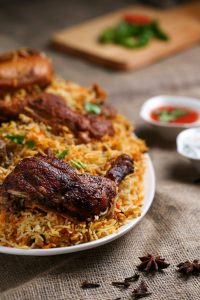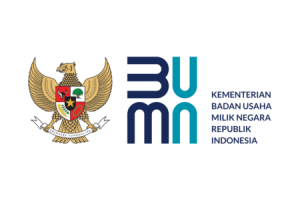Anchorage, Alaska – On an icy winter day when the sun barely rose higher than the peaks of the Chugach Mountains,
one store in a sleepy strip mall near the airport was abuzz with
activity. The hand-lettered cardboard sign outside told the story:
Alaska’s First Halal Grocery.
Inside, owner Lamin Jobarteh was pricing bottles of bright-orange palm oil, a product he was sure would fly off the shelves as soon as he called the Nigerians in town to let them know it had arrived. A group of Somali women in brightly colored headscarves looked through a gleaming white freezer for cubed bone-in goat meat.
Anchorage is now home to nearly 4,000 Muslims, up from a hundred or so when Jobarteh, who hails from the West African nation of Gambia, arrived in Alaska to attend graduate school in the 1990s.
For years, he watched as the growing community ordered bulk shipments of Halal meat and specialty groceries from Seattle and Vancouver, Canada, the nearest cities where they were available.
“I’ve seen the demand for a long time,” he said. “Muslim people
cannot live without Halal food, and it’s expensive to ship it up.
Halal, meaning “lawful” or “permissible” in Arabic, is a term for
food that is prepared according to Islamic dietary law. Animals must be
slaughtered following Quranic guidelines and in the name of Allah.
In December, Jobarteh left his career as a business banker to open Alaska Halal Grocery.
The white-walled shop carries familiar products like Cheetos and Heinz ketchup,
but also sells roti bread, fufu flour, a West African cassava-based
staple used to make a starchy, dumpling-like dish, and soft Indian
paneer cheese. You can get whole cardamom pods and spices for Bombay biryani, a famed Indian dish, along with a Big Texas brand cinnamon roll or a root beer.
Aside from the stocked goods, Jobarteh drives to the Matanuska-Susitna Borough
to preside over the Islamically correct butchering of animals at a
slaughterhouse in Palmer once a week or so. His shop features a
gleaming stainless steel kitchen in the back room where he can prepare
custom orders of meat for families.
“I had no experience in butchering or being a grocer before,” Jobareth says. “This is all a new skill for me.”
Anchorage’s Muslim community is growing in number as well as visibility, says Dr. Regina Boisclair, the Cardinal Newman Chair of Catholic Theology at Alaska Pacific University. She has tracked religious diversity in Anchorage for years.
Thirteen years ago, the community was small and fractured into two
factions that were barely speaking to each other. But in the past few
years, the Muslim community has gained strong leadership and has “come
into its own.”
Across the parking lot from Alaska Halal Grocery is the Islamic
Community Center of Anchorage, a small rented space where prayer
services, classes and lectures are currently held.
That won’t be home for long, Jobareth says.
In 2007, the community paid $600,000 for a 70-acre piece of land in
South Anchorage on which they plan to build the state’s first mosque.
They raised nearly $1 million from their own community and other U.S. groups — some were surprised to hear there were any Muslims at all in Alaska.
They plan to break ground on the first phase of the planned mosque,
school and educational center during the short construction season this
summer, an effort that received attention on international news network
Al-Jazeera.
Boisclair says the Halal grocery store and the planned mosque “will solidify the community.”
Alaska’s isolation leads to diversity you might not find in other
communities, Jobarteh says. The Anchorage masjid, or place of worship,
draws people with roots in Albania, Somalia, Gambia, Mali, Pakistan, Palestine, Bangladesh, American converts and others.
“In other places you’d have a Somalian masjid, a Pakistani masjid, and on and on,” he said.
Jobarteh, who left Gambia after a military coup destabilized the
country, says that Alaskan Muslims — some resettled by refugee
programs, some drawn to high-paying science and engineering jobs — have
one thing in common: they want to raise families in a safe, free place.
For many of the Alaska Halal Groceries customers, who have left
places with oppressive regimes, Alaska is a breath of fresh, cold air.
Along with a sense of safety, Jobarteh says that Alaskan Muslims
have been largely welcomed by the community at large, a situation that
hasn’t always been the case for some members who’ve lived in other
American cities post-9-11. Alaskans seem to value a live-and-let-live
approach, Jobarteh says, and that includes religious tolerance.
More visible signs of the growing Muslim community — like the
construction of the new mosque — could test that tolerance. Jobarteh
says the community plans to be proactive: Part of the long-range plan
for the mosque is to build a community education center where
non-Muslim Anchorage residents, especially soldiers from the two
military bases in town that frequently deploy to Muslim countries, can
learn about Islam.
“No place is perfect, but you can be safe and comfortable and raise your family here,” Jobarteh said. “You can express yourself.



